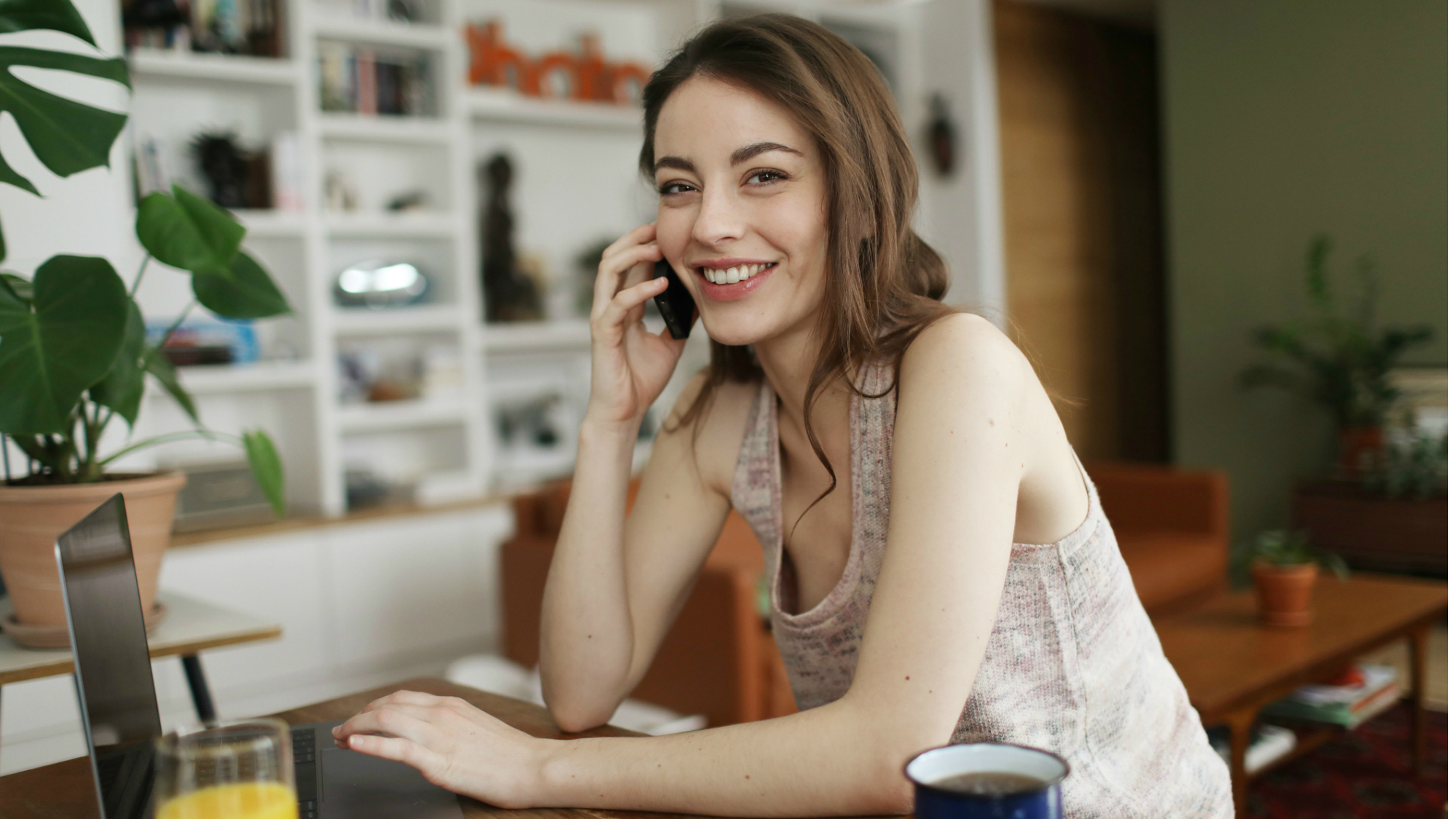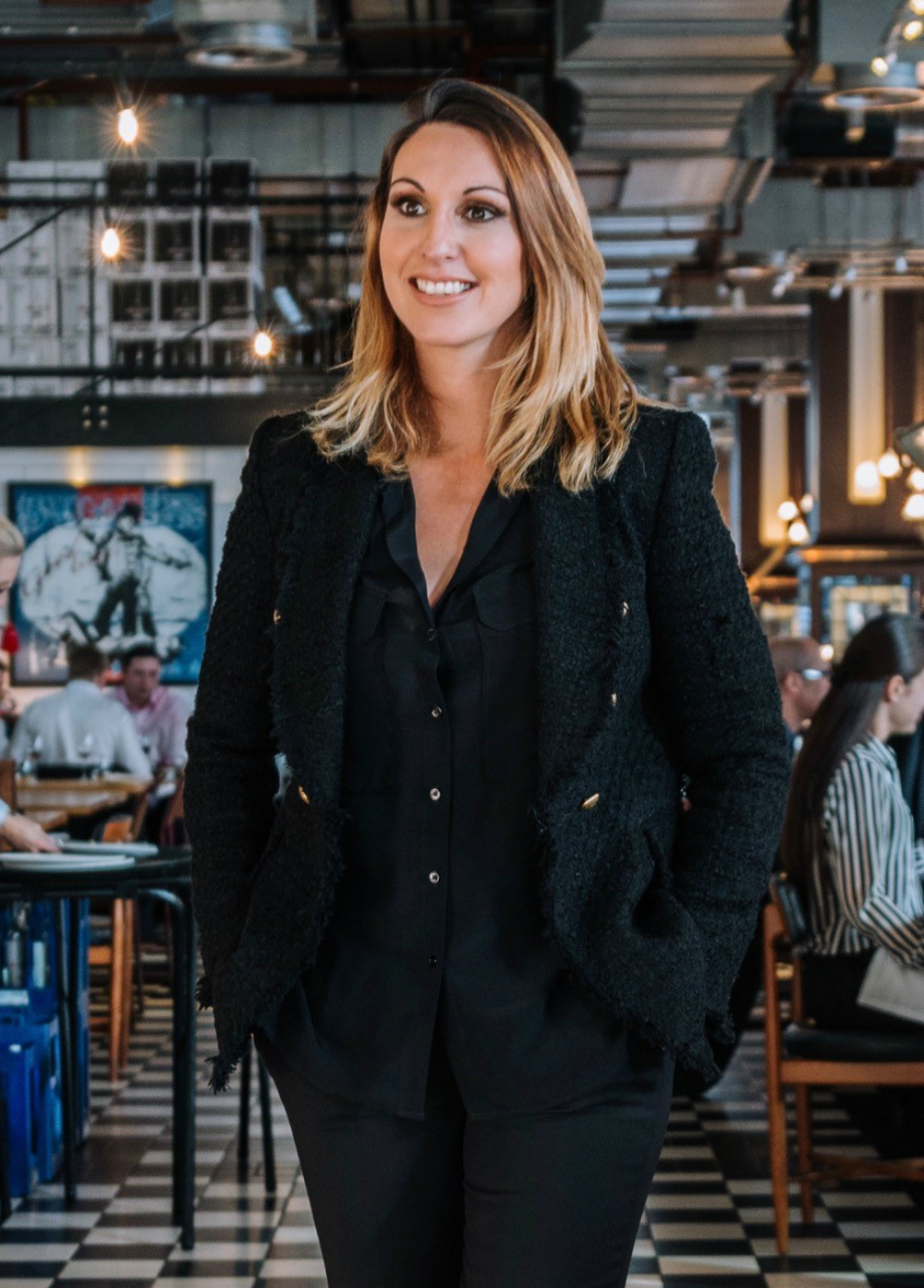Re-entry anxiety is a thing: how to cope in the changing working world
Boris has unveiled a roadmap to some sort of normality but let's face it, many ways of working will never return to the 'before times' - aka Feb 2020. Mental health advocate, Elaine Carnegie, explains how to survive and thrive in our new working lives


Celebrity news, beauty, fashion advice, and fascinating features, delivered straight to your inbox!
You are now subscribed
Your newsletter sign-up was successful
Boris has unveiled a roadmap to some sort of normality but let's face it, many ways of working will never return to the 'before times' - aka Feb 2020. Mental health advocate, Elaine Carnegie, explains how to survive and thrive in our new working lives
As we emerge from Lockdown 3.0 you’re bound to feel anxiety and confusion over what the world of work will look like. There's even a new name for it: re-entry anxiety. While returning to the office is still in the early stages, one thing is for sure, things will never return to how they were before.
Remote working has many positives for mental health, such as less commuting and more time to spend with loved ones. It also allows us more space and clarity so we can invest in a sustainable self-care routine - and this is going to be vital.
Elaine Carnegie, the founder of wellbeing and mental health consultancy Beingworks, says, 'Workplaces have already made adjustments based on government guidelines. But as we adapt and equip ourselves with more information, things are likely to change again over the months. Things will not always ‘go to plan’ and we need to be kind and forgiving to ourselves.'
This means prioritising our wellbeing and mental health, says Carnegie. 'Self-compassion is a powerful resilience factor and a strong predictor of wellbeing - and crucial to our performance at work.'
Whether you find yourself back in the office by the end of summer or still WFH, Carnegie's five vital tips will help you survive and thrive.
Re-entry anxiety conquered
1. Take self care seriously
Self care is simply doing something we enjoy or relaxes us. It ignites the brain to release our ‘happy chemicals’ - neurotransmitters serotonin, dopamine, endorphins and oxytocin. Physiologically, self care activities make us feel good, lift our mood and help to increase our energy levels and capacity for resilience. Most vitally they help us to reduce stress. Whether it’s baking, running or playing with the dog, make self care a habit to keep yourself mentally healthy.
Celebrity news, beauty, fashion advice, and fascinating features, delivered straight to your inbox!

2. Allow for anxiety
Many of us will be experiencing an anxiety that’s unfamiliar, born from extreme changes to routine and uncertainty. Psychologists call this phenomenon ‘re-entry anxiety’. It can mean fearing the health risk of returning to work, or anxiety about resuming social interaction. This anxiety is quite normal and triggered by events of recent months.
Although if your anxiety is affecting your daily life and sleep, make sure you speak to someone. Whether that's your line manager, GP or an organisation such as Samaritans (call: 116 123 or email jo@samaritans.org), it’s so important to talk about how you’re feeling.
3. Set your own boundaries
Our ability to set boundaries, disconnecting and reconnecting with work without compromising our wellbeing, is crucial. In fact it’s the key to achieving this integration of work and leisure, so we can keep up productivity and performance whilst staying mentally and physically well.
Be aware of the time spent doing a certain task, setting time aside for it so it doesn’t blur into your leisure time. Be disciplined about maintaining it, as well as building in time for self care.
4. Make your own rules
When working from home it’s easy to be consumed by work the whole time and start to feel overwhelmed by it. Make your own rules and routines based on what works for you when it comes to creating your work environment. Be mindful of what has the best effect on your wellbeing. One that enables you to perform at optimum levels and be professional.
5. Boost your energy
Now lockdown's easing, you may suffer from fatigue more than normal - at the exact point when you need more energy at work. Our physical tolerance has been depleted through inactivity and increased amounts of cortisol in our body due to the stress of the pandemic.
Without the usual holidays and events that usually reignites our energy levels, we need to find other ways to get a boost. Try a new sport, plan a camping trip, or explore a new area. Having things to look forward to is crucial after months of being locked in. More importantly, it will boost your resilience to cope with the demands of work.
Maria Coole is a contributing editor on Marie Claire.
Hello Marie Claire readers – you have reached your daily destination. I really hope you’re enjoying our reads and I'm very interested to know what you shared, liked and didn’t like (gah, it happens) by emailing me at: maria.coole@freelance.ti-media.com
But if you fancy finding out who you’re venting to then let me tell you I’m the one on the team that remembers the Spice Girls the first time round. I confidently predicted they’d be a one-hit wonder in the pages of Bliss magazine where I was deputy editor through the second half of the 90s. Having soundly killed any career ambitions in music journalism I’ve managed to keep myself in glow-boosting moisturisers and theatre tickets with a centuries-spanning career in journalism.
Yes, predating t’internet, when 'I’ll fax you' was grunted down a phone with a cord attached to it; when Glastonbury was still accessible by casually going under or over a flimsy fence; when gatecrashing a Foo Fighters aftershow party was easy-peasy-lemon-squeezy and tapping Dave Grohl on the shoulder was... oh sorry I like to ramble.
Originally born and bred in that there Welsh seaside town kindly given a new lease of life by Gavin & Stacey, I started out as a junior writer for the Girl Guides and eventually earned enough Brownie points to move on and have a blast as deputy editor of Bliss, New Woman and editor of People newspaper magazine. I was on the launch team of Look in 2007 - where I stuck around as deputy editor and acting editor for almost ten years - shaping a magazine and website at the forefront of body positivity, mental wellbeing and empowering features. More recently, I’ve been Closer executive editor, assistant editor at the Financial Times’s How To Spend It (yes thanks, no probs with that life skill) and now I’m making my inner fangirl’s dream come true by working on this agenda-setting brand, the one that inspired me to become a journalist when Marie Claire launched back in 1988.
I’m a theatre addict, lover of Marvel franchises, most hard cheeses, all types of trees, half-price Itsu, cats, Dr Who, cherry tomatoes, Curly-Wurly, cats, blueberries, cats, boiled eggs, cats, maxi dresses, cats, Adidas shelltops, cats and their kittens. I’ve never knowingly operated any household white goods and once served Ripples as a main course. And finally, always remember what the late great Nora Ephron said, ‘Everything is copy.’
